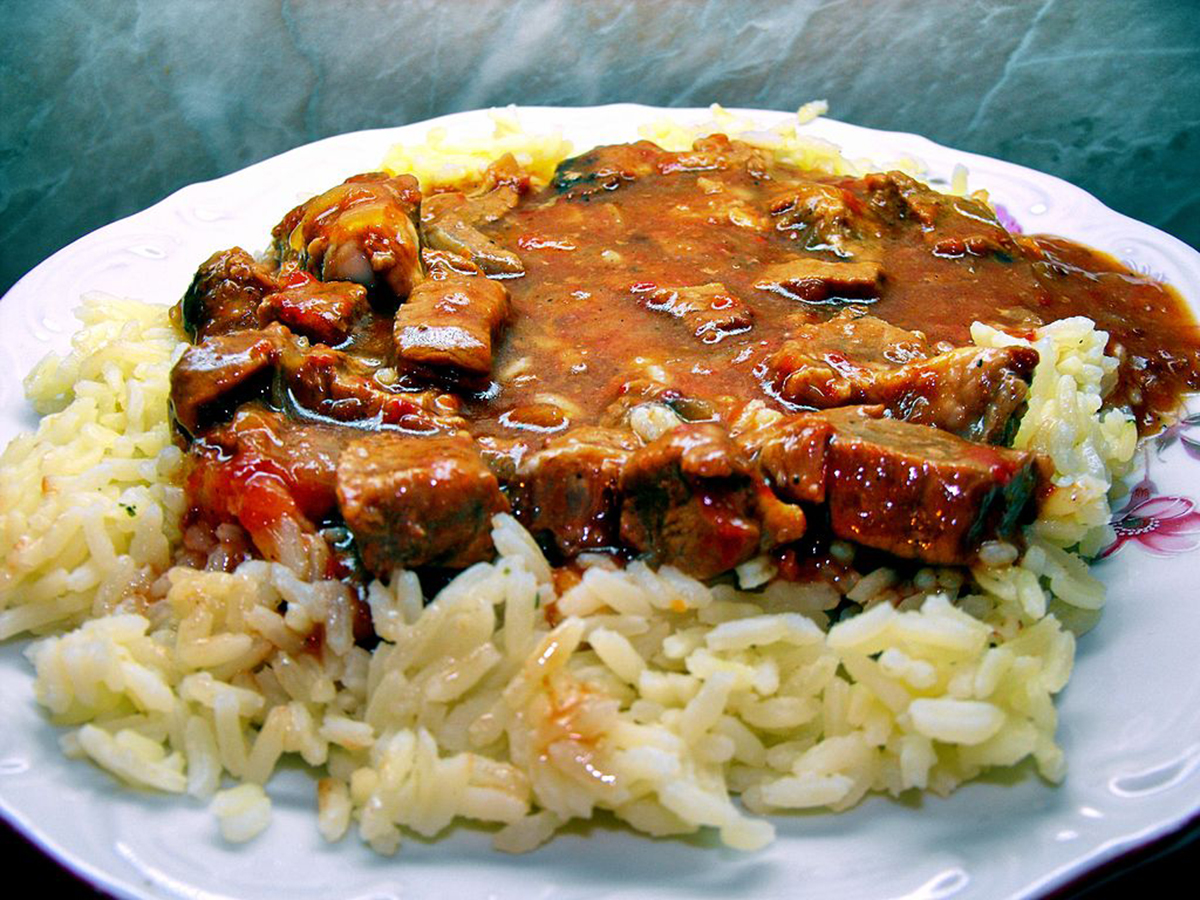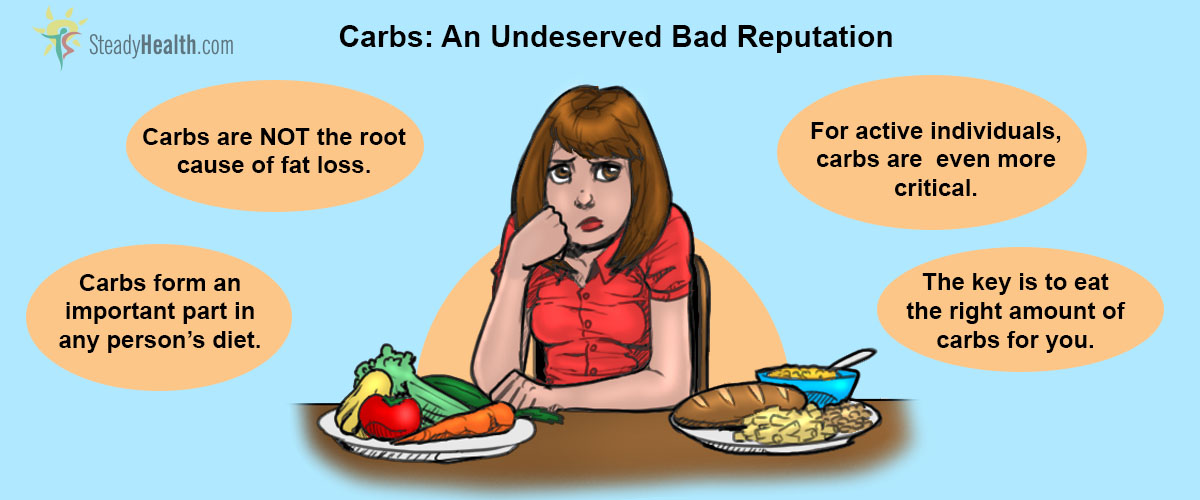“Carbs make you fat.”
“Low carb diets are best”
“Too many carbs prevent weight loss.”
“Don’t eat carbs after 6pm.”
How many times have you heard one of the above, and not given it a second thought?
With so much negative feeling towards carbs, it’s no wonder that they’re often deemed the bad guy of the dieting world. People tend to just accept it as fact that you need to cut carbs to lose weight. After all, anyone who switches to a low carb diet can immediately lose a few pounds within a matter of days. So surely that proves that carbs are bad when it comes to weight loss?
It’s not quite the case though.
Good results of low carb diet don't mean that carbs in general are bad
Let’s start by clearing up this first point – that going on a low carb diet leads to such rapid weight loss that this means carbs in general are bad.
You can carry up to 500 grams of glycogen at any one time, and each gram of glycogen holds with it 3 grams of water. Therefore, 500 grams of glycogen, plus 1.5 kilograms of water suddenly disappearing from your body results in a weight loss of 2 kilograms. Once again, this isn’t fat loss, it’s simply a loss of water weight, and it will go straight back on once you eat carbs again, and refill those glycogen stores.
So there’s that myth put to bed.
Do carbs contribute to fat gain?
Secondly, there’s this belief that carbs contribute to fat gain.
This is due to a hormone known as insulin. The premise is that when you eat carbohydrate, your body releases insulin, which is needed to help carry and store the carbs (as glycogen in the liver and muscle cells.)
The trouble with this theory though, is that you can only store fat when you’re in a calorie surplus (ie. Eating more than you burn.) Even if your insulin levels are high, you won’t store fat, unless you’re eating too many calories.
Additionally, it isn’t just carbs that promote the release of insulin – protein and carbs do too, and while this is largely to a lesser extent, there are exceptions. Whey protein, for instance, is highly insulogenic, despite containing virtually no carbohydrate.
The other reason why people often state that eating carbs, and in particular starchy carbs from bread, rice, potatoes, pasta and so on, is that it’s easy to overeat these kinds of foods.
See Also: Fat Vs. Carbs: Which One Is Really To Blame?
This is partially true, though it is dependent on the person. If you find you enjoy carbs and can eat them in moderation and within your required calorie intake, there’s no need to restrict them.
Carbs contain 4 calories per gram, which is the same as protein, but less than half that of fat, which contains 9 calories per gram. Therefore, in terms of energy density, carbs are far less energy dense than fats. Compare a slice of bread that contains 20 grams of carbs (80 calories) with a 40 gram serving of Brazil nuts at 20 grams of fat (180 calories) – and you can see where carb-based foods might be superior to fats.
When Carbs Are The Good Guys
Now that we’ve dispelled the myths around why carbs are often considered bad, and given the cold shoulder on a weight loss diet, let’s take a look at why, how and where they might be beneficial.

Your body’s preferred source of energy is carbohydrate. Carbs (either as glucose in the bloodstream or stored glycogen, as discussed earlier) are the easiest substrates for your body to break down and use for energy. You can use protein and fat for energy too, but the processes involved in metabolizing these is far more complex and time consuming, hence your body will always opt for carbs when it has a preference.
Another great reason to include carbs in your diet is because they’re muscle sparing.
When you lower your calorie intake, your body has to fight to maintain its energy sources. Unfortunately, this can mean digging into muscle mass so it can use protein as energy. While “getting muscly” may not be one of your main goals, retaining muscle is vitally important, as it not only improves your physique, but also helps keep your metabolic rate and speed of calorie burning up.
Without adequate carbs, you’re far more likely to drop muscle, get weaker, and end up with that “skinny fat” look.
Carbs taste good!
Yep, you might be surprised to be reading a dieting article that advocates eating foods you enjoy, but enjoying the diet you’re on is paramount, as the more you enjoy it, the more likely you are to stick to it, and get the results you desire. As we’ve seen that carbs are certainly not detrimental, why would you not eat them if you enjoy them? Provided you pick mainly nutrient-dense, filling carbs that you find satisfying, carbs can make a restricted calorie diet far easier to stick to.
How many carbs do you need?
A good, simple approach is to derive around 30 to 40 percent of your calories from carbs.
As carbs contain 4 calories per gram, this works out to 150 to 200 grams of carbs daily.
See Also: 10 Carbs You Should Always Keep In Your Diet
The rules on carbs
Within reason, you can eat any carbs you like, provided they fit your calorie intake and carb quota. That being said, fibrous carbs tend to be much more filling and contain higher levels of nutrients. Therefore, whole-grains, beans and pulses, along with carbs from vegetables and fruits, plus trace carbs in dairy products are your best bet. Aim to get a good 75 percent of your carbs from these, then eat smaller amounts of higher-sugar, less nutrient-dense carbs such as crisps, white pasta, ice cream, cookies and so on.
- "Insulin…an Undeserved Bad Reputation", By James Krieger, Accessed on April 23, 2014
- Mindmap by steadyhealth.com
- Photo courtesy of Biso by Wikimedia Commons : en.wikipedia.org/wiki/File:Kebap1027.JPG


